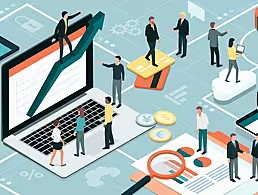In a world of rapidly advancing technology, how can young workers keep their skills up to date?
For Karie Willyerd, an advisor and chief learning officer in residence at Skillable, we are sprinting towards a future in which careers are longer and more volatile. “We’re at the crux of several critical changes that, in isolation, would fundamentally alter careers and work, but in combination, are accelerating and deepening those changes,” she said.
AI and other advanced technologies are essentially rewriting the rules of the workplace, in areas such as what constitutes ‘good’ work, job stability and career longevity, with Willyerd stating that for the first time in her career she has noticed that if research and insights are older than six months it is likely that they are no longer relevant.
“That’s how fast technology is changing the market and that’ll only accelerate as we get closer to general AI, quantum computing, 6G and beyond.
“My north star has always been to follow what’s new and exciting and then equipping people with the right skills to thrive in the new reality. The current discourse with AI, machine learning and generative AI really resonates with me because of this,” Willyerd said.
Transforming yourself
According to Willyerd, young people starting out now will bear witness to countless technological advancements and untold inventions. “Against that backdrop, it can be tricky to fully map out all of the skills they’ll need for long-term success,” she said.
Uniquely human skills that are difficult to computerise are always going to be in demand, though young employees will need to learn how these advanced systems work and evolve amid ongoing AI adoption.
By having what Willyerd described as a mastery of your domain, workers may find that as AI automates some of their role, they can be freed up to focus on strategic activities that demand a higher degree of skill, which is much harder to computerise.
Going forward, she believes it is unlikely that AI itself will replace humans in their jobs, rather, people with advanced AI skills will take over from those who lack the necessary talents.
“While we’re racing to ever-more complex and sophisticated machine and deep learning models, a race to skill workers to work alongside AI is also happening. If not within workplaces, then among the savvy individuals who know that embracing AI skills is the way to build their careers long term,” she said.
The world is changing rapidly and while many experts in the training sphere believe that continuous learning is the answer, Willyerd highlighted that the quality of education is crucial. Those with a higher degree of skill will obviously be in greater demand as their talents are significantly more difficult to automate.
She also noted the importance of challenging preconceptions. “Unlearning will become a big part of every worker’s learning experience. That involves identifying the notions that you believed or knew before a huge shift occurred and then re-learning what the new reality is,” said Willyerd.
“Generative AI is a good example of unlearning in action. Many used to believe that automating repeatable, mundane tasks would be the first AI breakthrough. With generative AI, it’s knowledge tasks like brainstorming and ideation that are being augmented.”
Ready or not
For Willyerd, employers have a moral responsibility to begin training their employees for a volatile future that is rapidly approaching, explaining that an employer’s duty of care to their workforce extends to helping them future-proof their careers.
She added, however, that while an upskilled workforce is of mutual benefit to employers and staff, ultimately, individuals should claim ownership of their skills. “The buck stops with each employee, as they are the only ones who can truly assess what skills they’ll need to meet their future career goals,” she said.
Employees should, if possible, share their aspirations with their employers to enable the organisation to effectively support skill development. If, however, you work under someone who fails to appreciate the need for long-term upskilling, Willyerd would advise people to independently maintain discipline and reskill throughout their careers.
Supportive employers should ensure that their company has the infrastructure to facilitate consistent self-improvement, for example, by providing employees with necessary e-learning resources, as well as the time to make use of them.
Willyerd noted that while we have no way of knowing what skills will be needed in the next 10 to 20 years, “being able to upskill quickly, validate those new skills and practise them so they can be easily applied on the job, will help workers adapt to new technologies and environments”.
Learning a new skill requires practice if it is to translate from the page into the workplace. In this interconnected world, the stakes for a business are high and “if one piece of code goes wrong, or an AI model delivers an inaccurate insight, there could be widespread, business-ending ramifications”.
That is, Willyerd explained, why employees need to be given the space to practise job-relevant skills as much as possible.
“You wouldn’t trust a surgeon who learned their skills via video. The same applies to the workplace, because one mistake in a major financial software could crash the stock market. A misconfigured cloud environment could cause global chaos. We are truly dealing with life or death-level scenarios.”
Find out how emerging tech trends are transforming tomorrow with our new podcast, Future Human: The Series. Listen now on Spotify, on Apple or wherever you get your podcasts.




